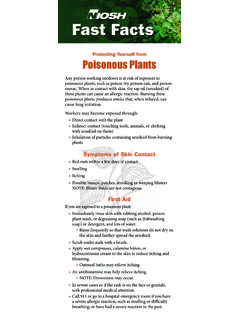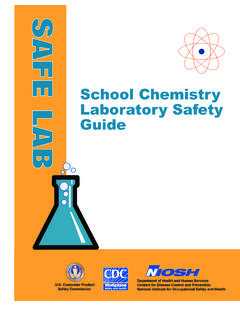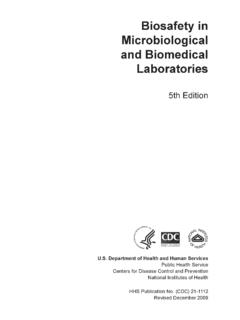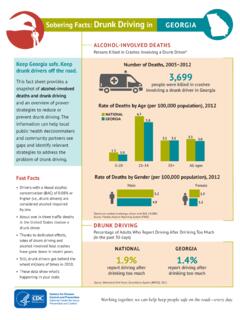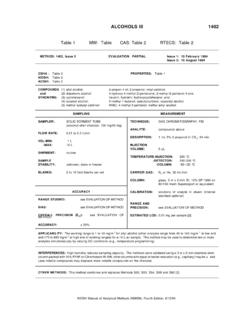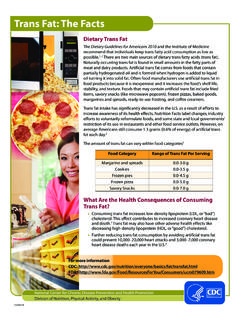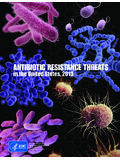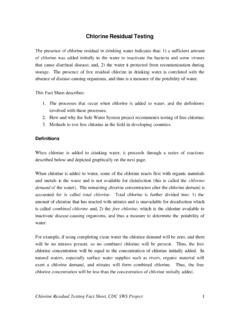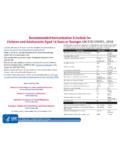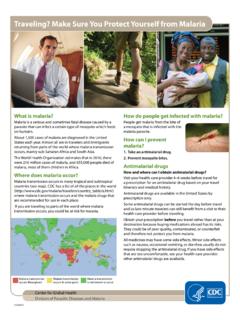Transcription of PARENT ENGAGEMENT Strategies for Involving Parents in ...
1 PARENT ENGAGEMENT Strategies for Involving Parents in School Health 2 PARENT ENGAGEMENT : Strategies FOR Involving Parents IN SCHOOL HEALTHPARENT ENGAGEMENT : Strategies for Involving Parents in School Health3 PARENT ENGAGEMENT : Strategies FOR Involving Parents IN SCHOOL HEALTHS uggested Citation: centers for disease control and prevention . PARENT ENGAGEMENT : Strategies for Involving Parents in School Health. Atlanta, GA: Department of Health and Human Services; Obtain Copies:Download from CDC s Web site: yRequest by e-mail: yCall toll-free: 1-800-CDC-INFO or 1-888-232-63484 PARENT ENGAGEMENT : Strategies FOR Involving Parents IN SCHOOL HEALTHA cknowledgmentsThis document was prepared by the centers for disease control and prevention (CDC), National center for Chronic disease prevention and Health Promotion (NCCDPHP), Division of Adolescent and School Health (DASH), with conceptual, technical, and editorial assistance from others across CDC and experts from the fields of health, education, and family involvement and ENGAGEMENT Expert Working GroupSarah J.
2 Allen, PhDU. S. Department of EducationSharon Adams-Taylor, MA, MPHA merican Association of School AdministratorsStephen Banspach, PhDCDC, NCCDPHP, DASHLisa Barrios, DrPHCDC, NCCDPHP, DASHS arah Butler RN, MSN, CDE, NCSNN ational Association of School NursesDana Carr, MPHU. S. Department of Education Chris DanielFamilies And Schools Together, DavisCDC, NCCDPHP, DASHP atricia Dittus, PhDCDC, National center for HIV/AIDS, Viral Hepatitis, STD, and TB PreventionKate EigNational School Boards AssociationJoyce L. Epstein, PhDCenter on School, Family, and Community Partnerships, Johns Hopkins UniversitySue FergusonNational Coalition for PARENT Involvement in EducationKari Gloppen, MPHCDC, NCCDPHP, DASHB renda Z. GreeneNational School Boards AssociationMary HaleyAction for Healthy KidsBarbara S. Haywood, MSN, RN,CPublic Schools, York County, South CarolinaPete Hunt, MPH, MEdCDC, NCCDPHP, DASHS andra Leonard, RN, MS, FNP CDC, NCCDPHP, DASHK aren LewisNational School Boards AssociationAmanda K.
3 Martinez, MPH, MSN, RNNational School Boards AssociationWhitney MeagherNational PTAS hannon Michael, MPH, PhDCDC, NCCDPHP, DASHS tephanie NeitzelCDC, NCCDPHP, DASHKen RollingCommunity Learning PartnershipLinda SheriffNational School Boards AssociationSusan ShafferMid-Atlantic Equity Consortium, TitzerAction for Healthy KidsLiza Veto, MSW U. S. Department of Education Deena ZacharinOffice of PARENT Relation, San Francisco Unified School District5 PARENT ENGAGEMENT : Strategies FOR Involving Parents IN SCHOOL HEALTHPARENT ENGAGEMENT : Strategies for Involving Parents in School HealthTable of ContentsAcknowledgments ..4 Introduction ..6 What is PARENT ENGAGEMENT in schools? ..6 How were these Strategies developed? ..6 Why is PARENT ENGAGEMENT in schools important? ..7 How can school staff increase PARENT ENGAGEMENT in school health? ..7 Connect ..10 Examples of ways school staff can connect with Parents .
4 10 Engage ..12 Provide parenting with Parents ..13 Provide a variety of volunteer opportunities ..15 Support learning at home ..16 Encourage Parents to be part of decision making at school ..17 Collaborate with the community ..18 Sustain ..20 Solutions for six common challenges to sustaining PARENT ENGAGEMENT ..20 Conclusion ..24 References ..256 PARENT ENGAGEMENT : Strategies FOR Involving Parents IN SCHOOL HEALTH Introduction Children and adolescents are establishing patterns of behavior that affect both their current and future health. Young people are at risk for engaging in tobacco, alcohol, or other drug use, participating in violence or gang activities, and initiating sex at an early However, a growing body of research demonstrates that enhancing protective factors in the lives of children and adolescents can help them avoid behaviors that place them at risk for adverse health and educational ,3 Protective factors include personal characteristics such as educational or career goals;4 life conditions such as frequent parental presence in the home at key times ( , after school, at dinner time);3 and behaviors such as involvement in pro-social activities ( , school or community sports).
5 5 Engaging Parents in their children s and adolescents' school life is a promising protective factor. Research shows that PARENT ENGAGEMENT in schools is closely linked to better student behavior,6 9 higher academic achievement,10 12 and enhanced social , 9 PARENT ENGAGEMENT also makes it more likely that children and adolescents will avoid unhealthy behaviors, such as tobacco, alcohol, and other drug 15 This publication defines and describes PARENT ENGAGEMENT and identifies specific Strategies and actions that schools can take to increase PARENT ENGAGEMENT in schools health promotion activities. The audiences for this publication include school administrators, teachers, support staff, Parents , and others interested in promoting PARENT ENGAGEMENT . Each of these audiences has different but important roles and responsibilities related to garnering support for, and implementing, these Strategies and actions.
6 What is PARENT ENGAGEMENT in schools? Parents play a significant role in supporting their children s health and learning, guiding their children successfully through school processes, and advocating for their children and for the effectiveness of schools. PARENT ENGAGEMENT in schools is defined as Parents and school staff working together to support and improve the learning, development, and health of children and ,17 PARENT ENGAGEMENT in schools is a shared responsibility in which schools and other community agencies and organizations are committed to reaching out to engage Parents in meaningful ways, and Parents are committed to actively supporting their children s and adolescents learning and , 17 This relationship between schools and Parents cuts across and reinforces children s health and learning in the multiple settings at home, in school, in out-of-school programs, and in the community.
7 For the purposes of this document, the word PARENT is used to refer to the adult primary caregiver(s) of a child s basic needs ( , feeding, safety). This includes biological Parents ; other biological relatives such as grandparents, aunts, uncles, or siblings; and nonbiological Parents such as adoptive, foster, or stepparents. Parents guide the child s upbringing, which includes the interaction processes between PARENT and child that contribute to the child s emotional and social development. How were these Strategies developed? The Strategies and actions recommended in this publication are based on a synthesis of PARENT ENGAGEMENT and involvement research and guidance from the fields of education, health, psychology, and sociology. Materials in the review include peer-reviewed journal articles, books, reports from government agencies and nongovernmental organizations, and Web sites.
8 Information from these sources was summarized to identify PARENT ENGAGEMENT practices in school that demonstrated an impact on students academic and health behaviors. In addition, recommendations were informed by the opinions of expert researchers, public health practitioners, and educators at the Parents as Partners: Strengthening PARENT /Family Involvement in School Health Policy and Practice meeting hosted by the National School Boards Association in 2008. This process identified evidence-based Strategies and specific actions that can be taken to increase PARENT ENGAGEMENT in school health activities. 7 PARENT ENGAGEMENT : Strategies FOR Involving Parents IN SCHOOL HEALTHOnly a limited number of studies have evaluated the impact of PARENT ENGAGEMENT on health outcomes. Therefore, many of the actions suggested in this publication are recommended on the basis of a single study of interventions that implemented multiple actions simultaneously, and it is difficult to isolate which components of the overall intervention contributed to observed positive changes in behavior and outcomes.
9 However, actions were included only if experts from CDC and the panel of advisors for this project believed there was a logical connection between the action and PARENT ENGAGEMENT ; the action was consistent with recognized standards of practice and feasible for most schools to implement; and the action was considered highly unlikely to be harmful to students. Why is PARENT ENGAGEMENT in schools important? PARENT ENGAGEMENT in schools can promote positive health behaviors among children and adolescents. For example, students who feel supported by their Parents are less likely to experience emotional distress, practice unhealthy eating behaviors, consider or attempt suicide, or disengage from school and ,18 In addition, school efforts to promote health among students have been shown to be more successful when Parents are involved. For instance, studies have shown that when Parents volunteer at their children s school, the likelihood of their children initiating smoking decreases,14 and the likelihood of their children meeting the guidelines for physical activity In addition, interventions with a PARENT ENGAGEMENT component have been shown to increase positive health behaviors such as children s school-related physical adolescent health promotion at When Parents and schools work together, they can deliver clear, consistent messages to children, encourage the development of positive health and academic behaviors School efforts to promote PARENT ENGAGEMENT can be part of a coordinated school health framework.
10 A coordinated school health framework engages families and is based on community needs, resources, and standards. In addition, this framework uses a comprehensive approach to school health by recognizing the importance of modeling healthy behaviors through staff health promotion and considering PARENT ENGAGEMENT to be an integral part of child among children, encourage children to value education, assist children in getting necessary preventive care, and improve access to resources and support ,13,14, 21 How can school staff increase PARENT ENGAGEMENT in school health? Although relatively little is known about what factors motivate Parents to become engaged in their children s education, the primary motivation for Parents to become involved appears to be a belief that their actions will improve their children s learning and Therefore, school staff should demonstrate to Parents how their children s health and education can be enhanced by their ENGAGEMENT in school health activities.
